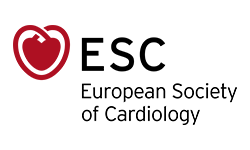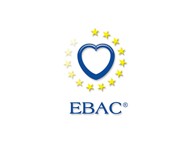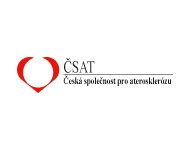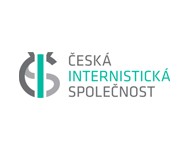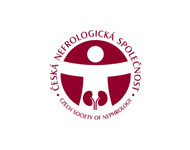The Statutes of the Czech Society of Cardiology (Registered Society)
Approved by the CSC membership meeting on 15.5.2016
1. Introductory Provisions
1.1. The Czech Society of Cardiology, registered society (hereinafter referred to as CSC) is a voluntary professional scientific organization that develops the field of cardiology. It mainly associates persons who are involved in the prevention, diagnosis, treatment and/or research of cardiovascular diseases. The CSC is the successor of the Czechoslovak Society of Cardiology founded in 1929.
1.2. The CSC is a separate legal entity with headquarters at Pekařská 962/72, Brno, post code 602 00.
1.3. The CSC defends the professional interests of its members. Its main activity is the development of the professional care in the field of cardiology. In cooperation with other entities and institutions it is involved in education and expert activity in the field of cardiology, it organizes professional events, distributes grants, and publishes the Cor et Vasa journal. The CSC is the representative of the Czech cardiology in the European Society of Cardiology and other international professional associations.
1.4. The Committee can regulate the matters that are not governed by the statutes of the CSC in the CSC Working Regulations and the Committee guidelines.
2. Membership in the Czech Society of Cardiology
2.1. There are five types of membership in the CSC: regular doctor membership, regular non-doctor (health care workers) membership, extraordinary, foreign, and honorary membership.
2.2. Regular doctor membership. A natural person, sui juris, over 18 years of age, who is a medical doctor and has a permanent address in the Czech Republic can become a regular doctor member of the CSC. The regular membership is applied for in writing addressed to the CSC Committee; the application shall contain the applicant’s personal data (name, surname, date of birth, residential address, e-mail address, and in the case of cardiologists who have gained this specialized qualification, the date of the specialized qualification acquisition). The CSC Committee decides on the acceptance of each new member and informs the applicant about the decision. The member is obligated to report any change of the data submitted to the CSC Secretariat.
2.3. Regular non-doctor membership. A university graduated health care worker can become a regular non-doctor member. The conditions for admission are the same as that of a regular doctor member. A regular non-doctor member has the same rights and obligations with the exception of the right to vote and be elected to CSC bodies, but has the right to vote and be voted to the bodies of the associations or working groups they are members of. On the date of adoption of these statutes, the regular members health-care workers become regular non-doctor members.
2.4. Extraordinary membership. A natural person older than 18 who wants to support CSC activity in any way can become an extraordinary member of CSC. The extraordinary membership is granted and withdrawn under the same conditions as regular membership. An extraordinary member has the rights and obligations of a member, except the right to vote and be elected to CSC bodies. Extraordinary members can vote and be elected to bodies of the working groups they are members of, but they cannot be elected the Chairperson of the working group, with the exception of the Working Group of Cardiac Nurses and Related Professions.
2.5. Foreign membership. A natural person older than 18 who is a doctor working in the field of cardiology, but does not have a permanent address in the Czech Republic, may apply for membership under the same conditions as the person applying for regular membership. They have the same rights and obligations as regular members, except the right to vote and be elected to any CSC body.
2.6. Honorary membership. The CSC grants CSC honorary membership for outstanding services to the development of cardiology. An honorary member does not pay any membership fees. They shall enjoy all the rights of regular members.
2.7. The condition of the regular doctor membership, regular non-doctor membership, and extraordinary membership is the regular payment of membership fees. The membership fees shall be decided by the CSC Committee.
2.8. CSC members may resign their membership in CSC by a written notification to the CSC Committee. In this case, the membership ends on the date when the written notification is delivered to the CSC. Members can be expelled for extremely serious medical or ethical misconduct or for non-payment of the membership fees. The membership fee is to be paid by June 30 each year. Any CSC member can submit a proposal to expel another member, in writing, and with stating the reason for expulsion. The proposal is submitted to the CSC Committee. The Committee shall inform the given member about the proposal and the member shall have the opportunity to defend. The CSC Committee shall decide about the expulsion. The member shall be informed about the expulsion by the Committee in writing (by post or e-mail) within 60 days from the date of the Committee decision. Within 15 days from the decision delivery, the expelled member may propose that the expulsion is reviewed at the membership meeting. The paid membership fees are not refundable upon termination of the membership. The membership also ends upon the member’s death.
2.9. If a member is expelled for not paying the membership fees, they can become CSC members again after the settlement of all financial liabilities, for which they were expelled.
3. CSC Committee. Elections. Secretariat
3.1. The CSC activity is governed by the elected Committee. The number of elected Committee members is 13 (including the current Chairperson, the Chairperson Elect and the Immediate Past Chairperson). Additionally, the Committee includes ex officio Chairs of associations within the CSC and the editor-in-chief of the CSC journal. The maximum possible number of all CSC Committee members is 21. The Committee members have the right to participate in the Committee meetings and vote. The Committee is the statutory body of the Czech Society of Cardiology. It is chaired by the incumbent CSC Chairperson, who is the statutory representative of the CSC and acts for the CSC in public. The term of office of members of the committee shall be four years. Each CSC member may be a member of the Committee in a maximum of two consecutive terms. They can be re-elected to the Committee after a break lasting at least one term of office. If a position in the CSC Committee or CSC Supervisory Commission gets vacant for a period longer than one year, it is automatically filled by the candidate who won the second highest number of votes in the elections to the body in question in the second round. A member of the Supervisory Commission cannot become a member of the Committee.
3.2. The Supervisory Commission is elected at the same time and in the same way as the CSC Committee. It has three members. The Supervisory Commission members' term of office is four years. The Supervisory Commission members shall elect the Chairperson from amongst their number. The Chairperson governs its activities. The members of the Supervisory Commission may participate at CSC Committee meetings as observers; however, their main duty is to ensure proper management of the society and compliance with generally binding legal regulations, these statutes, and internal regulations of the CSC. At least once in a calendar year, the Commission provides the CSC Committee and the general membership meeting with a written and oral report on its activities.
3.3. The organization and procedure of elections to the CSC bodies are regulated in the Election Rules adopted by the CSC Committee.
3.4. CSC Chairperson:
The incumbent Chair Elect automatically becomes the Chairperson at the first Committee meeting after the concluded elections of a new committee. The existing incumbent Chairperson becomes the Immediate Past Chairperson for the following term of office. The Immediate Past Chairperson is also the statutory deputy of the incumbent Chairperson. Each regular member can be elected the CSC Chairperson only for one term of office. The CSC Chairperson acts on behalf of the society in the public, chairs the Committee meetings, provides members with information about the activities at the annual congress, etc. In urgent situations, the Chairperson makes decisions on behalf of the Committee and submits the decisions for subsequent approval to the Committee as soon as possible. In extraordinary situations, when the incumbent Chairperson or the first Deputy Chairperson cannot perform their duties for serious reasons for a period longer than one month, the CSC Committee may authorize any Committee member to chair the CSC or act as a deputy for the CSC Chairperson.
3.5. At its first meeting, the newly elected Committee shall elect the CSC Scientific Secretary from among their number. The Scientific Secretary is responsible for the written agenda, minutes of the meetings of the Committee and of the membership meeting, provides information to the members, prepares professional events of the society, gathers materials for the Committee meetings and the annual congress.
3.7. The CSC Chairperson Elect is elected at the end of the third year of the CSC Committee term of office out of the Committee members by the members. The election takes form of secret ballot and has two rounds. The two Committee members with the highest number of votes in the first round proceed to the second round. In the event of a draw, the election is repeated; in a repeated draw, the vote of the incumbent CSC Chairperson shall decide.
3.8. When voting in the Committee, a simple majority of the present Committee members is decisive. In a draw, the Chairperson’s vote decides. The Committee meeting is quorate when the absolute majority of all CSC Committee members are present, provided that all the members were informed about the date and place of the meeting in time. Per rollam voting is expressly allowed, throughout the scope of the CSC Committee competences, with the exception of the election of the Chairperson, the Chairperson Elect, Deputy Chairpersons, the Scientific Secretary, and the Treasurer. In the case of per rollam vote, the Committee Chairperson determines the way in which the vote will take place, either by postal ballot or electronically (by computer). In the case of postal ballot, the period of ballot reception shall not be shorter than 14 days from the act of sending the call for vote; in the case of an electronic vote, the period of vote reception shall not be shorter than 7 days from the act of sending the call for vote. Only the votes that have been delivered within the prescribed period to the address or e-mail address the Chairperson shall designate are valid. In the case of electronic vote, only the votes that have been sent from the member’s email address reported by the member to the Committee are valid.
3.9. The editor-in-chief of the official CSC journal is a member of the CSC Committee ex officio. The term of editor’s office is four years; the editor’s position can be resumed repeatedly by the same person, without any limitations in the number of terms of office. However, the editor-in-chief shall be re-elected or re-confirmed by a new Committee each four years. The editor-in-chief can be removed from office by the Committee, without giving any reason, at any time.
3.10. The CSC administration is managed by the Secretariat. Its composition and activities shall be decided by the CSC Committee. More detailed definition of the composition and work of the Secretariat are stipulated in the Working Regulations.
4. Associations and Working Groups of the Czech Society of Cardiology
4.1. The CSC includes associations and working groups (WG), which are engaged in various sections of cardiology. Associations are engaged in the key and professionally and organizationally autonomous subfields of cardiology with high numbers of specialists. Associations and WG do not have their own legal personality. Associations and WG are established from the CSC members’ initiative; the proposing members shall submit the program of the association or WG to the CSC Committee. The Committee shall decide on their establishment and specify the way of mutual communication. Merging individual WG or their division is only possible with the consent of the CSC Committee and a simple majority of all the members of the committees of the relevant WG. Associations and WG organize symposia and other work meetings and present the results of their work at professional events of the CSC. Associations and WG publish in the official journal of the CSC.
4.2. Only a member of the CSC shall become a member of an association or WG.
4.3. The incumbent Chairperson of each WG has the right to participate in the CSC Committee meetings, without the right to vote. The WG Chairperson is not entitled to obligate the CSC in any way. The WG Chairperson is not entitled to represent the CSC in professional matters - he/she is only entitled to represent the working group in question. The functioning of WG is regulated by the CSC Working Regulations.
4.4. Financial management of working groups and associations is carried out within the CSC accounting.
4.5. Associations do not have their own legal personality. The incumbent Chairperson of each association automatically becomes a member of the CSC Committee, with the right to vote. The association Chairperson is not entitled to obligate the CSC in any way. The association Chairperson is not entitled to represent the CSC in professional matters - he/she is only entitled to represent the association in question. The initiative to establish an association shall come from individual working groups. The functioning of associations is regulated by the CSC Working Regulations.
5. Membership meeting
5.1. The highest body of the CSC is its membership meeting. Membership meeting is always held within the annual congress. During the membership meeting, the CSC Committee provide information about the society activities in the past year and its financial performance. The CSC Supervisory Commission presents the report on the inspection of the society’s finances on this occasion. Additionally, society’s WG and association Chairpersons present reports on their activities in the past year. These reports can be included in the summarizing report on the society’s activities, provided by the CSC Committee. The CSC Committee can convene an extraordinary membership meeting in the period of Czech Cardiological Days, or, in a completely exceptional situation, on any other day. The date and venue of the membership meeting shall be communicated to the members at the CSC website and/or in the program of the annual CSC congress or Czech Cardiological Days, at least 30 days in advance. Additionally, the CSC Committee is obligated to convene a membership meeting at the initiative of at least one-third of all CSC members, or at the initiative of the Supervisory Commission. Unless the Committee convenes the membership meeting within 30 days from the receipt of the initiative, the person who submitted the request can convene the membership meeting at the expense of the CSC.
5.2. All members of the CSC are entitled to participate in the membership meeting.
5.3. The membership meeting is quorate if the majority of all CSC members is present. In the case that a majority is not present, the Committee is obliged to convene a replacement membership meeting, where the presence of the majority of all members is not required, and decisions are made if an absolute majority of the members present vote in favour. With regard to the fact that the vast majority of the CSC members only meet once a year, during the CSC congress, it is possible to convene the two meetings (proper and replacement) in the same period, but always with at least 4 hours in between them. The date of the membership meeting shall be communicated to the members at least one month in advance. The membership meeting may deal with and decide on all matters which are not reserved for another CSC body in these statutes, in particular the following: approve the CSC Committee annual report, approve the report on financial performance for the previous calendar year, approve the supervision report, make amendments to the CSC statutes, or other points submitted by the Committee. If the membership meeting does not approve the amendments to the statutes, the current version shall remain in force. If the membership meeting does not approve the annual report of the Committee and/or the annual report on the financial performance, specific measures leading to the situation remedy shall be proposed and accepted by the very membership meeting.
5.4. The CSC Secretariat manager is responsible for the minutes of the meeting and attendance sheets. The minutes and the attendance sheet are verified and confirmed after the membership meeting by the signatures of the incumbent Chairperson and at least two other Committee members.
6. Activities of the Czech Society of Cardiology
6.1. The CSC has the objectives to increase the level of cardiology in the Czech Republic, based on the latest knowledge and research results, and to continuously improve the care of patients with cardiovascular diseases in the Czech Republic.
6.2. The CSC professional activity is divided into the main and secondary activities. The main activities include the annual CSC Congress, the Czech Cardiological Days, and grant activities. The secondary activities include the organization of events of WG/associations, publishing the Cor et Vasa journal, ESC registers, and more.
6.3. The CSC endeavours to achieve these objectives in the following ways:
6.3.1. supporting research in the area of cardiovascular disease;
6.3.2. providing permanent postgraduate training for cardiologists, paediatric cardiologists, physicians of other fields and health care workers, active in the fields of prevention, diagnosis and treatment of cardiovascular diseases;
6.3.3. organizational-methodological activities in the field of cardiology and paediatric cardiology;
6.3.4. communication with health care payers about the professional aspects of payment for medical acts, materials and resources.
6.4. The specific means to meet the CSC objectives are the following:
6.4.1. organizing the annual CSC Congress;
6.4.2. organizing events of WG Kardio 35 for the presentation of the results of young cardiologists' (up to 35 years of age) research;
6.4.3. organizing the Czech Cardiological Days;
6.4.4. organizing other professional events, which are determined by the society Committee or committees of working groups;
6.4.5. issuing the professional cardio journal, Cor et Vasa, with the informative appendix, Kardio;
6.4.6. cooperation with the European Society of Cardiology and the other national societies;
6.4.7. organizing congresses, symposia and seminars by associations and WG;
6.4.8. participation in and support for the organization of postgradual training events of other professional medical societies and international symposia and conferences focused on cardiovascular diseases;
6.4.9. providing financial contributions in the form of CSC research grants to young cardiologists (up to 35 years of age) for cardiovascular research in the Czech Republic and abroad;
6.4.10. promoting active participation (lectures) of young cardiologists at the listed (the list of these actions is determined by the CSC Committee) international events;
6.4.11. preparation, publication and implementation of the "CSC Best Practices" for the diagnosis and treatment of the most common and/or most serious cardiovascular diseases and their regular innovation in compliance with the newly published ESC documents;
6.4.12. elaborating the concept of the development of cardiology in the Czech Republic (the National Cardiovascular Program) and its updating as needed;
6.4.13. cooperation with public administration authorities, health insurance companies, the Czech Medical Chamber, and other professional medical societies. The CSC provides advisory and expert services to these authorities and bodies.
6.5. Annually, the CSC Committee has an independent specialized audit of financial management for the previous year carried out.
7. Financial activities of the Czech Society of Cardiology
7.1. The CSC as a separate legal entity is eligible to acquire rights and liabilities in property matters. The primary source of revenues is membership fees, which is used for the financing of the main activities of the CSC. The CSC determines the conditions for membership, the membership fees, and the terms of financial management. The financial management is proposed in accordance with the valid regulations by the CSC Committee and it is approved by the CSC membership meeting.
7.2. The Treasurer of the society is responsible for the effective financial management in accordance with the valid regulations.
7.3. With the agreement of its members, the CSC is allowed to provide other professional societies with financial means to pay for some of their expenses (e.g., to support multidisciplinary events related to cardiology, etc.). The use of these means will be controlled by the Committee and the members will be informed.
7.4. All financial management of the CSC is controlled by the members of the CSC Supervisory Commission, who regularly inform the CSC members on its activities on the occasion of membership meetings.
8. Final provisions
8.1. These statutes shall enter into force on the date of their adoption at the CSC membership meeting. At the same time, the existing statutes expire.
8.2. An amendment to the statutes may be proposed by the CSC Committee or by a petition drawn by a group of at least 100 CSC members. The amendment must be proposed to the Committee in writing, not later than 3 months before the annual congress. The CSC Committee is obliged to discuss the amendment proposed by a group of 100 members immediately and either recommend it for adoption to the membership, or submit it with an explanation why the Committee does not recommend its adoption. The CSC Committee itself proposes amendments to the statutes at any time before the date of the congress. The proposed amendments shall be discussed by the membership meeting and voted on under the conditions stipulated in 5.3 of these statutes. The amendments to the statutes come into force on the date of their adoption at the membership meeting.
8.3. The CSC terminates through the processes specified in the related act or by a two-third majority of the members present at the quorate membership meeting, on condition that all members have been informed on the proposal for the termination of the society in advance. All CSC members are in such a case legally responsible for the proper settlement of all financial and other commitments of the CSC.
8.4. The CSC keeps a list of its members. The Committee makes decisions about registrations and deletions from the list of members. The list of members will not be available. The Committee only can decide about its disclosure.
15.5.2016, Brno
Prof. MUDr. Miloš Táborský, CSc, FESC, FACC, MBA
CSC Chairperson 2015 -2019
